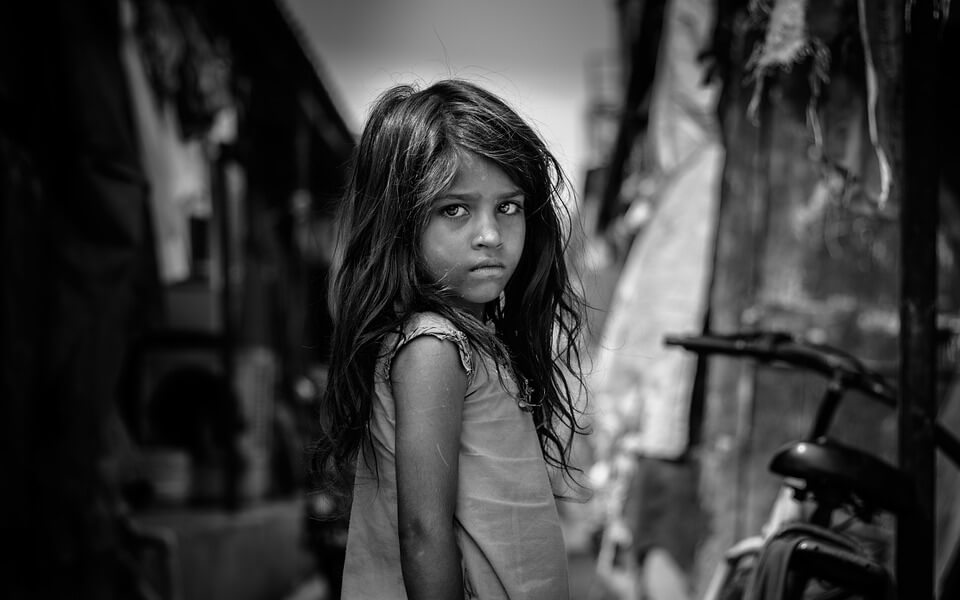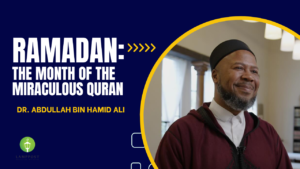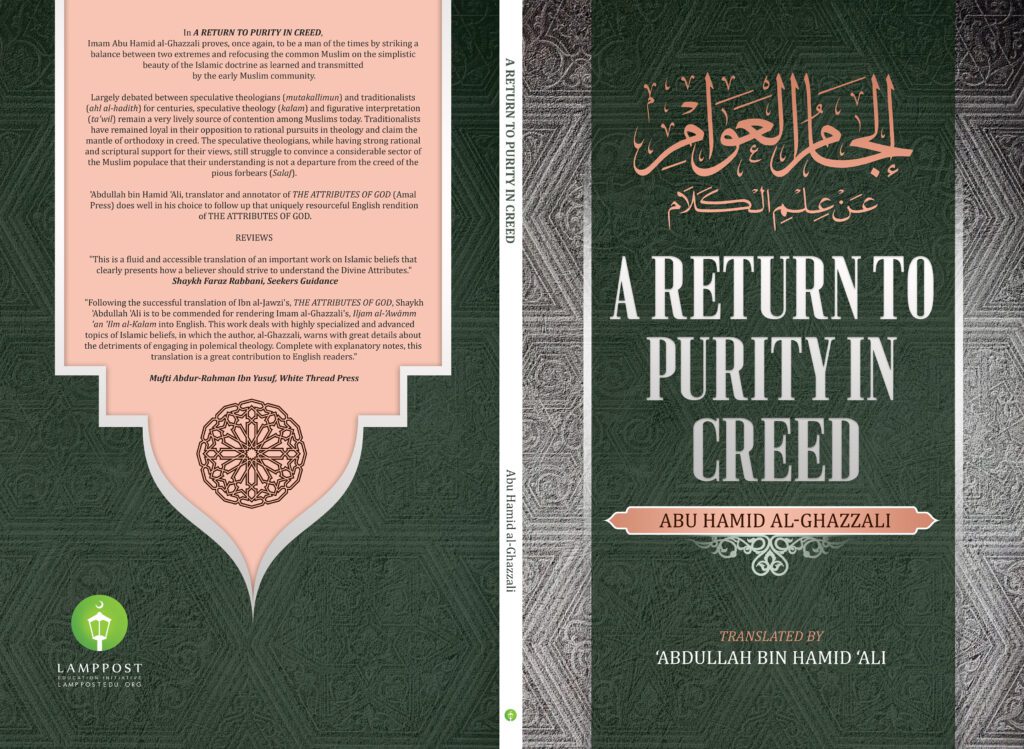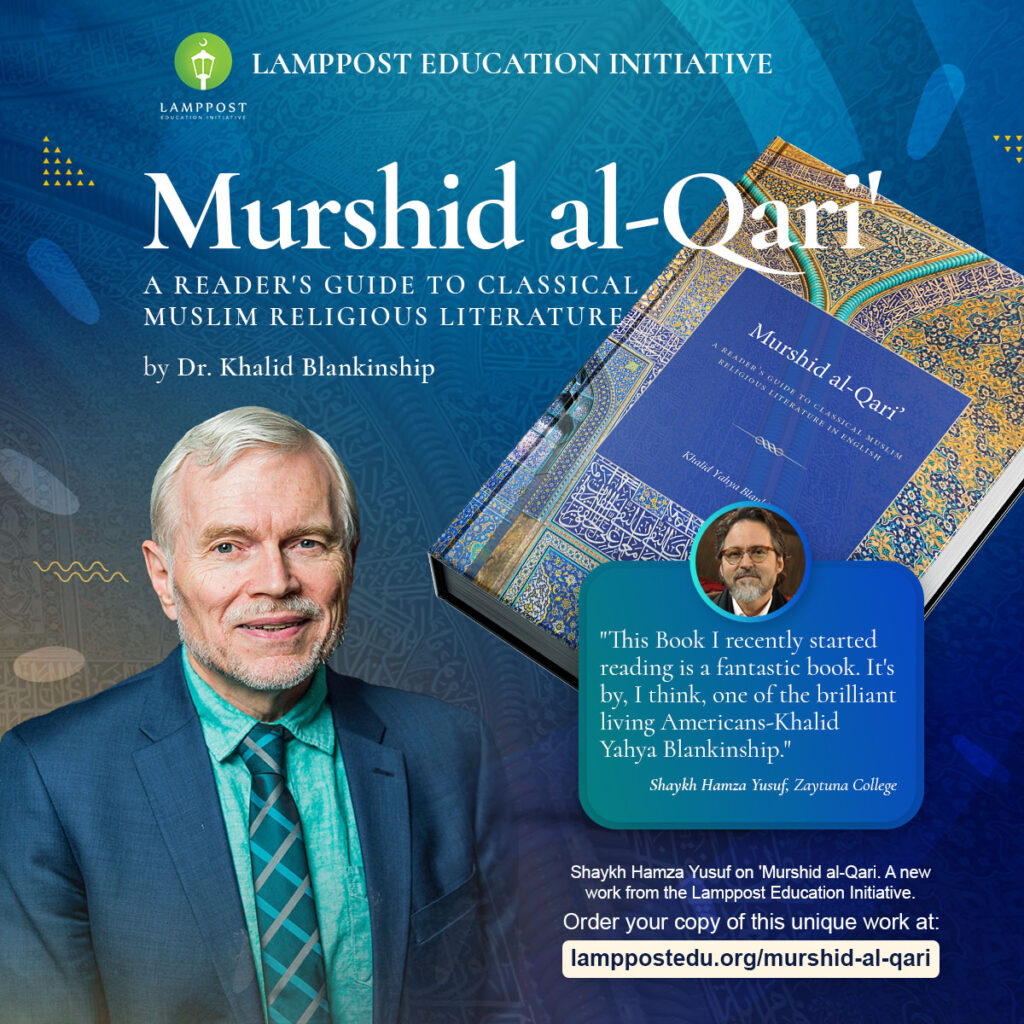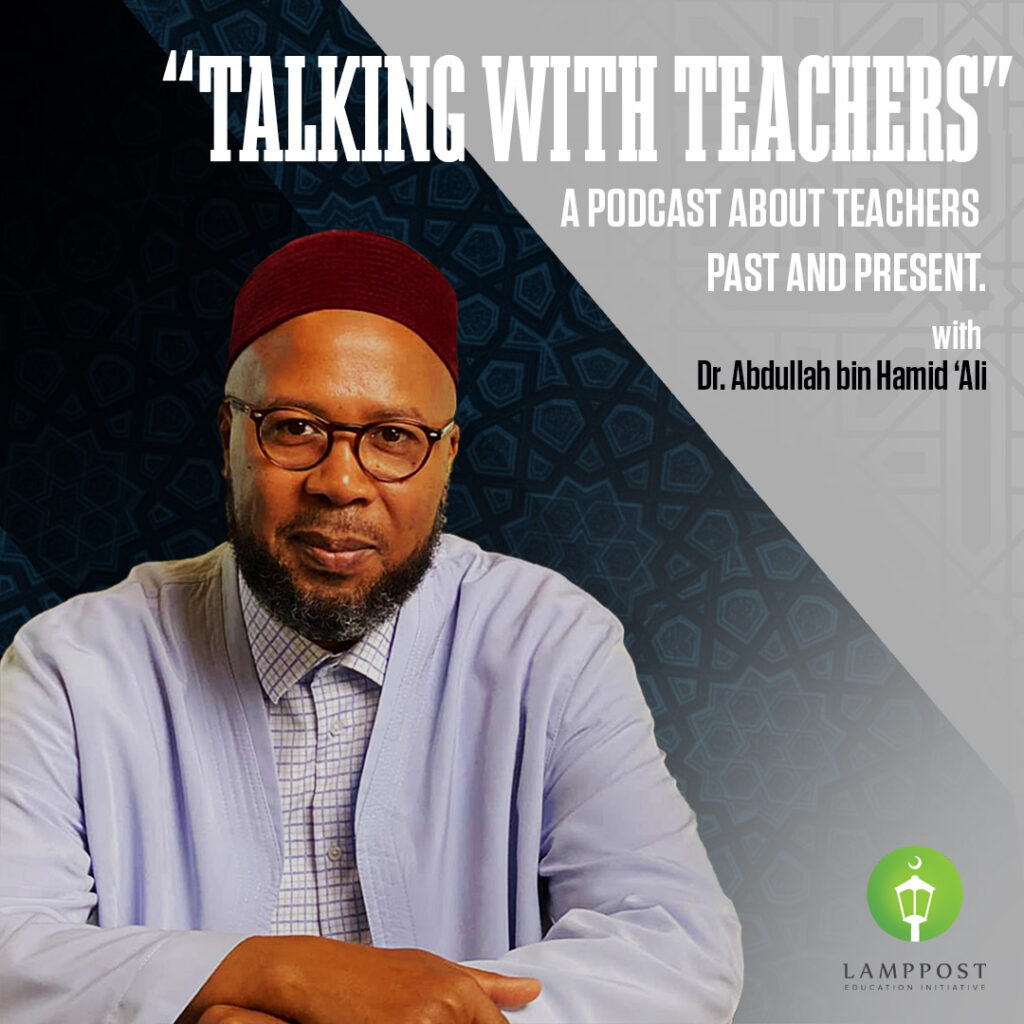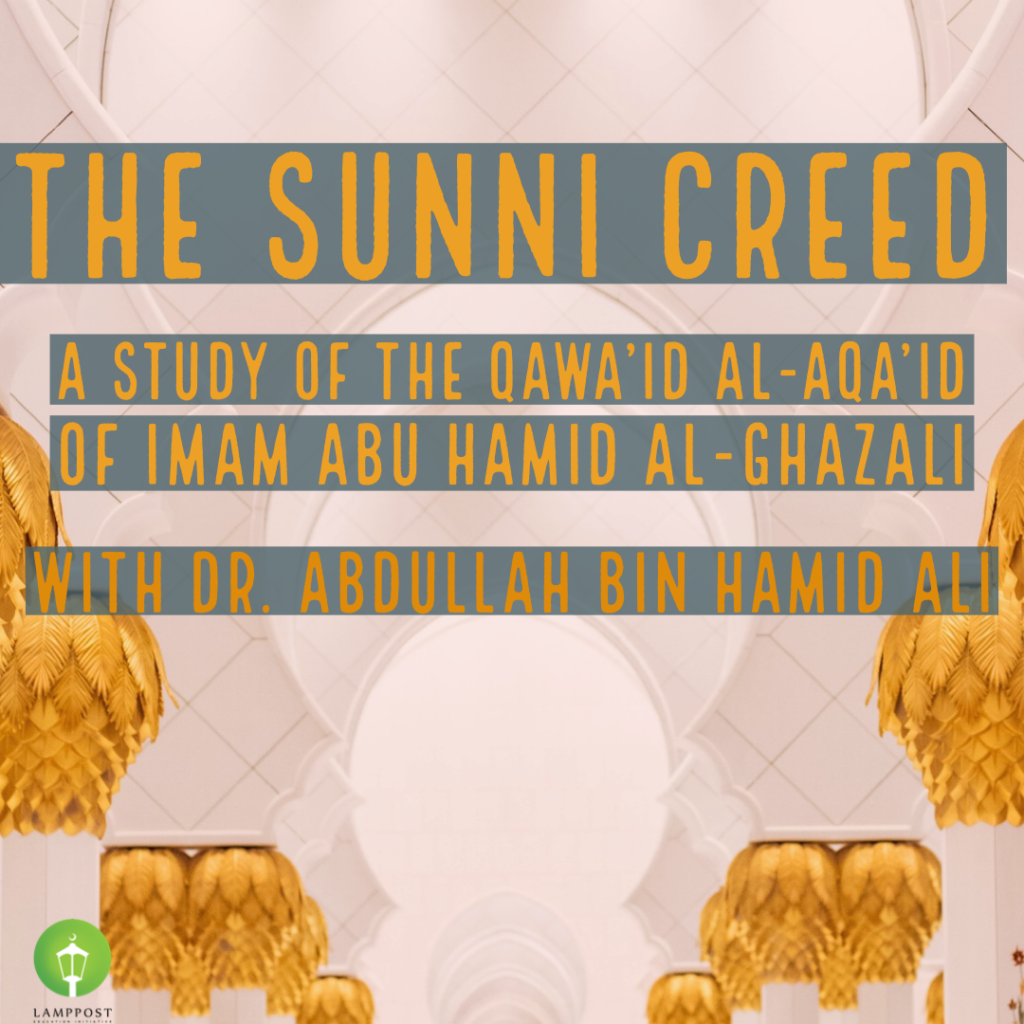In a sahih hadith found in Bukhari and Muslim, the Prophet (saws) states: “The child belongs to the marriage bed, and the adulterer gets the stone”. Some have interpreted this hadith to mean that a man has no responsibility to children born out of wedlock especially if this child was born prior to the acceptance of Islam! While it may seem morally reprehensible and unacceptable, how do we properly understand and interpret the hadith? How does Islam deal with questions about children born out of wedlock?
Dr Khalid Yahya Blankinship provides a detailed response to these questions in this exclusive Lamppost article.
Question: Does a man who begat children out of wedlock before becoming a Muslim have any connection with those children under Islam? In particular, does not the well-established hadith, “The child belongs to the marriage bed, and the adulterer gets the stone (or: gets nothing),” prove that such a man has no responsibility to his children born out of wedlock before he became a Muslim?
Response:
To say that a man who has children out of wedlock before becoming a Muslim and then upon becoming a Muslim ceases to have any responsibility for such children is completely unacceptable and should by no means be allowed or admitted. This is because all genealogies recognized in the Jâhiliyyah continue to be recognized in Islam. Thus, if any man has children out of wedlock from before embracing Islam but has in any way acknowledged those children in the past or present, whether by explicit statement or merely by his actions of treating them as his children, those children are unalterably his children forever, and he cannot subsequently repudiate them. However, if a man has had children outside of marriage in the Jâhiliyyah and has never recognized them as his own, that is another matter and has to be adjudicated before the qâdî.
Even in the latter case, the matter cannot be dealt with summarily by the man acting alone.Islam does not actually recognize non-Muslim marriage rules as having a bearing on Muslims.
Therefore both legal marriages and common-law marriages established in the Jâhiliyyah count in Islam.
(1) Even if common-law marriages between non-Muslims were not recognized by the state, a couple living together would still be deemed as having established a household and thus a non-Muslim common-law marriage as far as Islam is concerned. This is especially true of non-Muslim majority lands such as ours where the Sharî‘ah of Islam does not prevail. Thus, the children of such pairings are legitimate and must be attributed to their true fathers. The fact that common-law marriages were until recently recognized by the State of Pennsylvania only further strengthens this point here in Philadelphia.
On the other hand, once people are Muslims, Muslim law applies and children subsequently born out of wedlock to Muslim parents are not supposed to be recognized, according to the hadith. But even so, there is in the law the provision of istilhâq or legitimation, whereby a man recognizes a child as his.
While in general this requires a statement of the father before the judge, other proofs are also accepted to establish the supposition of a lawful marriage, thus recognizing the legitimacy of the children. These other proofs include sworn testimony of at least two ‘udûl witnesses that the father acknowledged the child before. Also, as cited in Mulla, these proofs also include “the continuous cohabitation of the alleged parents; treatment (by the father) of the mother and child (as if they were his wife and child); and repute and notoreity of the
father as part of a marriage among the members of the family, the community, or respectable members of society. Legitimacy of a child may be presumed from these circumstances without any direct proof of the marriage, and without any formal act of legitimation.
(2) Once established, such legitimacy cannot later be altered by the father’s denial.
(3) It should be noted that these rules considerably parallel the rules for recognizing common-law marriages in the states that do so here in America.
There are a number of crucial references on this point, including hadiths. The most important are principles drawn from Mâlik’s al-Muwatta’
(4) and commentaries on it, especially al-Muntaqâ sharh al-Muwatta’ of Abû al-Walîd al-Bâjî (d. 484/1091), the Andalusian Mâlikî Qâdî, who wrote an extensive
study of this very point.
(5) Also, the scholar of hadith and fiqh, Dr. Husayn Shawât (Houcine Chouat) of the American Open University and Majma‘ Fuqahâ’ al-Sharî‘ah bi-Amrîkâ, agrees with the position here taken. The hadith that the questioner bases his argument on, while it is a sahîh hadith found in both the collections of al-Bukhârî and Muslim
(6) as well as al-Muwatta’ of Mâlik as cited above, does not at all support the conclusion that he has stated. In this hadith, Sa‘d ibn Abî Waqqâs and ‘Abd ibn Zam‘ah were
disputing who should have charge of a child born by the slave woman of ‘Abd’s father Zam‘ah. Neither Sa‘d nor ‘Abd had a right to claim the child because neither was the father. The Prophet (SAAS) thus ruled in this case that the child belongs to ‘Abd as a brother on the basis that, in the absence of any conclusive proof or declaration to the contrary, the child belongs to the marriage bed, or, in this case the bed of concubinage. Thus, ‘Abd would have the rights to inherit ownership of the child of Zam‘ah’s slave woman as a part of his inheritance. But ‘Abd stated that this boy was his brother, thus freeing him from any
suspicion of slavery. That did not suffice, however, to establish his nasab or genealogy as being from Zam‘ah; therefore, the Prophet (SAAS) told his wife Sawdah bint Zam‘ah to veil herself from the boy when he was around. Had Zam‘ah been established as the boy’s father, the Prophet (SAAS) would not have said this. None of this has anything to do with what the brother brought up. In particular, note that both Sa‘d and ‘Abd were seeking to get custody of the boy in order to raise him, not to escape from their parental responsibilities.
As for the aspect dealing with the statement in this hadith, “The child belongs to the marriage bed, and the adulterer gets the stone (or: gets nothing),” that only applies when people have become Muslims, at which time Muslim marriage becomes mandatory. The Prophet (SAAS) never required anyone to go through a new marriage upon becoming Muslim; thus, he recognized the offspring of the various types of marriage relationships extant in the Jâhiliyyah as well as the marriages themselves as legitimate and established in relationship. As stated in al-Muwatta’ cited above and even more explicitly in al-Mudawwanah,
(7) ‘Umar ibn al-Khattâb used to attribute children born in the Jâhiliyyah to their real fathers as legitimate, even if they were the offspring of relationships other than proper marriages.
There is also a hadith found in a hasan version in Ahmad ibn Hanbal’s Musnad in which the Prophet (SAAS) states, “Whoever denies being the father of a child in this life, thereby putting the child to shame (or: in order to put the child to shame), Allâh will put that father to shame on the Day of Resurrection before all the witnesses, as a just punishment for each offense.”
(8) Thus, fathers should be reminded of their responsibilities for their children and how they will be asked about this on the Day of Judgement.
Khalid Yahya Blankinship
(1) Muwaffaq al-Dîn ‘Abd Allâh ibn Ahmad Ibn Qudâmah al-Maqdisî, al-Mughnî, Beirut: Dâr Ihyâ’ al-Turâth, Vol. 10, p. 271, mas’alah 8555.
(2) Mulla, Principles of Mahomedan Law, Pakistan ed. revised by M. A. Mannan, from the 17th Indian ed.revised by Hidayatullah, Lahore: Law Publishing Co., 1977, p. 322, Chapter XVII, section 339.
(3) Shams al-A’immah Muhammad ibn Ahmad al-Sarakhsî, al-Mabsût, Cairo: Matba‘at al-Sa‘âdah, 1324-1331/1906-1913, Vol. 17, pp. 98-99.
(4) Mâlik ibn Anas, al-Muwatta’, Cairo: Dâr al-Sha‘b, no date, pp. 460-462, Kitâb al-aqdiya, bâb al-qadâ’ biilhâq al-walad bi-abîhi, bâb al-qadâ’ bi-mîrâth al-walad al-mustalhaq, and bâb al-qadâ’ fî ummahât alawlâd; in English: Imam Malik, al-Muwatta, edited by Idris Mears, translated by ‘A’isha ‘Abdarahman at-
Tarjumana and Ya‘qub Johnson, Norwich: Diwan Press, 1982, pp. 344-345, sections 36.21-36.23, traditions nos. 20-25; Imam Malik, Muwatta, edited and translated by Muhammad Rahimuddin, pp.319-321, Bk. XXV, Chs. 443-444, traditions 1415-1420 (note that the Rahimuddin translation is an inferior abridgement, as it omits the words of Mâlik from the original).
(5) Abû al-Walîd Sulaymân ibn Khalaf al-Bâjî, al-Muntaqâ sharh Muwatta’ Mâlik, edited by Muhammad ‘Abd al-Qâdir Ahmad ‘Atâ, Beirut: Dâr al-Kutub al-‘Ilmiyyah, 1420/1999, Vol. 2, pp. 332-356, especially pp. 347-348.
(6) Muhammad Ibn Ismâ‘îl al-Bukhârî, al-Jâmi‘ al-sahîh, Kitâb al-buyû‘, bâb tafsîr al-mushabbihât; in English: al-Bukhârî, The Translation of the Meanings of Sahîh al-Bukhârî, translated by Muhammad Muhsin Khân, 2nd revised edition, Ankara: Hilal Yayinlari, 1976-1977, Vol. 3, pp. 153-154, hadith 269;
Muslim ibn al-Hajjâj, al-Sahîh, Kitâb al-ridâ‘, bâb al-walad li-al-firâsh wa-tawaqqî al-shubuhât; in English:
Muslim, Sahih Muslim, translated by Abdul Hamid Siddiqi, Lahore: Shaykh Muhammad Ashraf, 1391-
1394/1971-1974, Vol. 2, pp. 744-745, hadiths 3435-3438.
(7) Sahnûn ibn Sa‘îd al-Tanûkhî, al-Mudawwanah al-kubrâ, Beirut: Dâr al-Kutub al-‘Ilmiyyah, 1415/1994, Vol. 2, p. 551.
(8) Ahmad ibn Hanbal, al-Musnad, edited by Sidqî Muhammad Jamîl al-‘Attâr, Beirut: Dâr al-Fikr, 1414/1994, Vol. 2, p. 255, hadith 4795=CD ROM Jâmi‘ al-fiqh al-islâmî, Harf Co., Musnad Ibn Hanbal, hadith 4564.
Dr. Khalid Yahya Blankinship
Born in Seattle, WA, Khalid Yahya Blankinship obtained his BA in History in 1973 from the University of Washington, an MA in Teaching English as a Foreign Language in 1975 from the American University in Cairo, and an MA in Islamic History in 1983 from Cairo University. His Ph.D. in History is from the University of Washington in 1988.
After traveling extensively in Europe and the Middle East, Blankinship long resided in Egypt and in Saudi Arabia at Makkah, becoming fluent in both classical and colloquial Arabic. He taught English for several years at 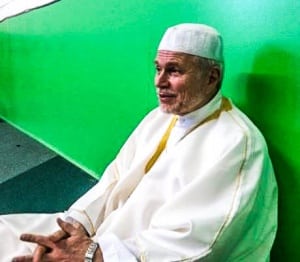 the American University in Cairo, and then History at the University of Washington. In 1990, Blankinship moved to Philadelphia, where he was appointed in the Department of Religion at Temple University. Promoted to the rank of Associate Professor in 1996, he has served as Chair of the Department of Religion 1998-2002, Departmental Graduate Director 2003-2013, and Chair again from 2013. He is active in lecturing and research on religion in general and Islam in particular.
the American University in Cairo, and then History at the University of Washington. In 1990, Blankinship moved to Philadelphia, where he was appointed in the Department of Religion at Temple University. Promoted to the rank of Associate Professor in 1996, he has served as Chair of the Department of Religion 1998-2002, Departmental Graduate Director 2003-2013, and Chair again from 2013. He is active in lecturing and research on religion in general and Islam in particular.
In addition to courses on Islam, he regularly teaches Religion in the World as well as Religion and Science. He has regularly presented papers at the annual meetings of the American Academy of Religion (AAR) and the American Oriental Society (AOS), and has also participated in meetings of the Middle East Studies Association (MESA). He has delivered lectures in many places, including Morocco, Saudi Arabia, Jordan, Egypt, India, and Malaysia. Also, Blankinship studied with a number of Muslim religious scholars, especially Shaykh Ismâ‘îl Sâdiq al-‘Adawî (1934-1998), the Imâm of Masjid al-Azhar in Cairo, and he has made the acquaintance of many well-known scholars of the Muslim world. He has posted a number of his responses to questions on Muslim law (on-line). He participated in the series of religious lectures in the Arabic language called al-Durûs al-Hasaniyyah (Hasanian Lectures) presented before the king in Morocco during Ramadân 1989-2000.Dr. Khalid Blankinship is a regular contributor to the Lamppost Education Initiative. We are pleased to announce that we have published a new book by Dr.Blankinship. ‘Murshid Al-Qari’-A Reader’s Guide to Classical Muslim Religious Literature in English’ is a unique work that explores the English translations of the Qur’an and Tafsirs.

